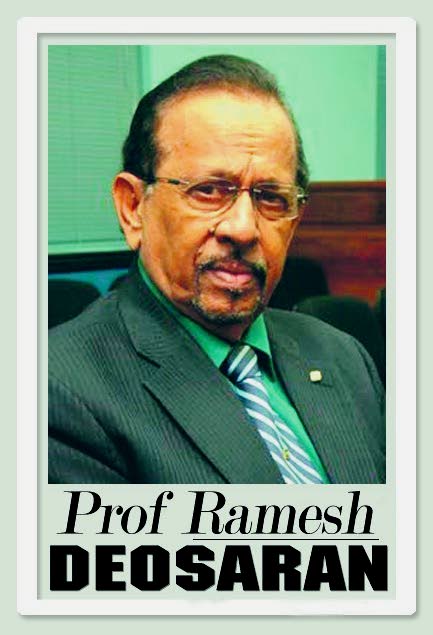Lies, politics and Freud

Lie. Often found a lot in politics, the courts and some advertisements, this means “an intentionally false statement; used to persuade or get into or out of a situation.”
In politics, it has become a subversive instrument of deception. Are lies sometimes “necessary,” for example, to save your mother’s life?
This is the kind of “moral dilemma” psychologists use to assess a person’s moral thinking. In their book Lying and Deception in Everyday Life, Michael Lewis and Carolyn Saarni describe how we also lie and deceive ourselves so as to maintain sanity and self-esteem. Like other virtues, truthfulness is rarely absolute.
Lies and their first cousin, propaganda, did not escape the recent local government elections. And from the look of things, it would likely become more intense towards the coming general election. You might have heard “all ah dem tief.” Or “dey are de most corrupt party in de history of dis country.” Or “all ah dem chasing man and woman.” Or he is the “fourth richest politician," etc. Our elections are fought more by perceptions than by measured performance. Self-serving propaganda seeks to neutralise critical thinking and feed existing prejudices. Fighting political perceptions, however, is like fighting ghosts.
Touching on local culture, calypsonian Lord Nelson’s “lying competition” calypso made a big hit, each example ending with “you hear lie, that is lie.” There were a few others on lying, including Sparrow’s melodious Lying Excuses – how lies can cover up a husband’s infidelities.
Nazi Germany's Joseph Goebbels, Hitler’s Minister of Propaganda, encouraged Germans to despise and execute Jews and sell the notion of a superior race. The US Congress’ 1974 investigation of US President Richard Nixon and the Watergate scandal exposed lying in the highest places. Intelligence reports around 2002 publicly expressed serious doubts that there were weapons of mass destruction in Saddam Hosein’s Iraq, yet both US President George Bush and British PM Tony Blair persisted in saying yes, there were. During 1998 impeachment hearings, former US President Bill Clinton also lied in denying a sexual relationship with Monica Lewinsky.
The impeachment process of US President Donald Trump included several allegations of lying. Lies are often used to hide political corruption. Bothered by the troubling extent of lying in politics, reputable scholars published numerous books, one of them being Prof Kathleen Hall Johnson’s 340-page book Dirty Politics: Deception, Frustration and Democracy.
During the recent local government election campaign, Opposition Leader Kamla Persad-Bissessar, showed a video of PM Dr Rowley, firmly, and repeatedly pledging “not to close down Petrotrin.” She then showed another video, subsequently having Petrotrin chairman Wilfred Espinet firmly declaring that all workers would be fired with Petrotrin’s closure. Ms Persad-Bissessar then, like Lord Nelson, and referring to Dr Rowley’s earlier pledge, declared, “Yuh hear lie? Dat is lie.” Energy Minister Franklin Khan’s in-between justification for Petrotrin’s closure lost ground there.
Local parties bring down costly American or British “campaign consultants” who reputedly know how to manipulate voters’ minds and hopefully create winning images of both party and candidates. Controversial references are made to Cambridge Analytica and US President George Bush’s adviser Karl Rove.
This is where Freud comes in. Both Persad-Bissessar and US House Speaker Nancy Pelosi referred to how a person can project his negative traits on to his opponent. Persad-Bissessar said this was the political strategy used by Karl Rove and apparently being used here. Pelosi said this is the psychological tactic used by Trump and his associates by saying that Pelosi hates Trump, while according to her, it is they who hate her. Projection is one of Freud’s six defence mechanisms.
Why is the busty, bikini-clad girl lying next to the for-sale whisky bottle? Why do politicians pictorially celebrate caressing babies? In 1986, advertiser Roy Boyke’s “baby picture” did it for the NAR. In less favoured days, Persad-Bissessar used Bob Marley’s No Woman, No Cry and won many hearts. Rowley, too, had his early share, moving him to undergo image reconstruction.
Lying to or misleading Parliament is objectionable, even punished. MPs have hundreds of ways to conceal the truth by saying, for example, they did not “knowingly” lie. After all, the answers they give are generally provided by their technocrats. Not necessarily lying, but what English professor Williams Lutz calls “doublespeak.” He says: “Politicians use doublespeak to explain and justify their actions, or to say they didn’t do what they did, or what they did isn’t what we think they did.” And this tendency is energised by the new industry of political spin doctors.

Comments
"Lies, politics and Freud"